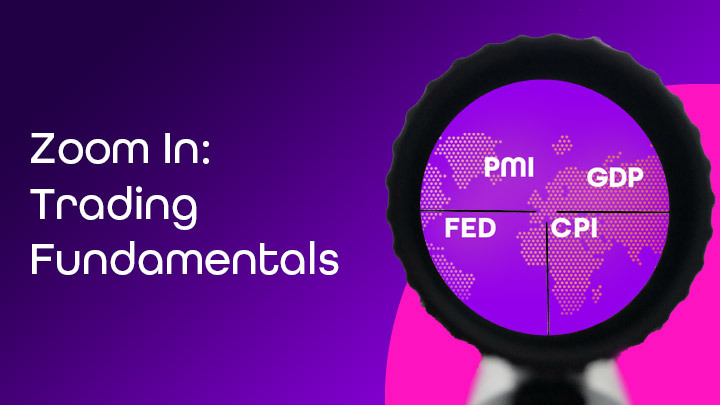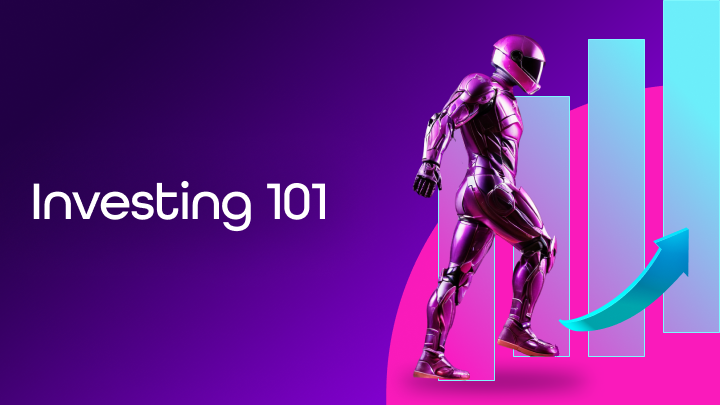Not sure, where to invest money? Start here with these 10 ideas
Got a few extra bucks in your bank account and don’t want them just lying around? Smart move! Money in the bank doesn’t age like fine wine – it actually loses value over time due to inflation. What costs $5 today might cost $10 a few years from now.

You might think investing is only for the rich. But the truth is: you don’t need millions to start. You can invest with just a few dollars. It’s not about how much you have — it’s about what you do with it.
In today’s world, there are more options than ever when it comes to where to invest your money. And ironically, that’s often the problem — too many choices, no clear direction. So where should you invest your money?
To help you out, we’ve put together a list of 10 practical investment options, including their pros and cons. But before we dive into them, let’s cover some basic rules every investor should follow.
7 smart rules before you decide where to invest money
Before asking: “Where is the best place to invest money?”, take a moment and ask yourself these key questions. These are the fundamentals followed by smart investors — whether they have $3 or $300,000.
- Know why you’re Investing
Extra cash? Financial freedom? Building a safety net? Your goal will help define the best investment type for you. Short-term gains? Think trading. Long-term stability? Try ETFs or funds.
- Define your time horizon
Need the money in a month, a year, or ten years? Long-term investments (like stocks or ETFs) often offer better returns but need patience. Short-term strategies (like forex) can be quicker but riskier.
- Only invest what you can afford to lose
If it’s your rent money — don’t even think about it. Play it safe and only invest what won’t hurt to lose. Peace of mind is priceless.
- Set limits
There are no guarantees in investing. Even the “safest” investment strategy can fail. Set your limits. Staying sane and fed > chasing risky hype.
- Diversify
Don’t put all your eggs in one basket. Combine different approaches — savings, stocks, self-education, and maybe some forex experimentation. That’s how you reduce risk.
- Be aware of hidden costs
Fees, taxes, time spent learning — everything adds up. Even a “small” 2% annual fee can eat up a big chunk of your returns over time.
- Don’t underestimate small steps
Saving small amounts, investing $20/month, buying a course… It all matters. Investing in yourself is often the best investment you’ll ever make.
10 Realistic options: Where should I invest my money?
Here’s a quick rundown of 10 ways you can put your money to work — complete with pros and cons to help you figure out where it is good to invest money based on your goals.
- Savings Accounts, retirement plans, building savings
The classic way of putting money aside – used by most people and also the safest.
✅ Pros: Very low risk, depending on the country you live in, government can support for some products, great for emergency funds and long-term saving.
❌ Cons: Very low returns, inflation can eat up most of the profit, money is often locked with early withdrawal penalties.
- Stocks and ETFs
Investing in specific companies or bundles of stocks (ETFs), such as tech sectors or whole indexes.
✅ Pros: High return potential, long-term growth (e.g., S&P 500), easy to invest small amounts regularly.
❌ Cons: Value can fluctuate a lot, requires some market monitoring, not ideal for short-term goals.
- Cryptocurrencies
Bitcoin, Ethereum, and other digital currencies – a major trend dividing the world into “believers” and “skeptics.”
✅ Pros: High growth potential, decentralized and innovative, available 24/7.
❌ Cons: Extreme volatility, unregulated markets, and many scams, requiring strong nerves.
- Real estate
A classic go-to for those seeking stability, physical ownership, and long-term rental income.
✅ Pros: Stable value over time, potential for passive rental income, inflation protection.
❌ Cons: High upfront cost, illiquid asset (not easy to sell quickly), hassle with tenants and maintenance.
- Bonds
You lend money to a government or company, and they pay you interest in return.
✅ Pros: Regular income, lower risk than stocks (especially with government bonds), simple to understand.
❌ Cons: Lower returns, risk of corporate default, sometimes requires high capital to start.
- Forex
Trading currency pairs – fast, exciting, and accessible even with small capital.
✅ Pros: Start with a small deposit, trade anytime (24/5), great for active capital management. Here you will find out how to start trading Forex and avoid costly mistakes.
❌ Cons: Requires time to study and practice, emotionally demanding, high risk without strategy.
💡 TIP Fintokei
If you’re curious, start with a demo trading account, Some platforms let you prove your skill and earn real profits with zero risk.
- Mutual funds
Professional managers invest for you – ideal if you don’t want to study markets yourself.
✅ Pros: Expert-managed, effortless diversification, perfect for long-term investing.
❌ Cons: Management fees reduce returns, no control over chosen assets, and returns are not guaranteed.
- Commodities (gold, silver, oil…)
Investing in something tangible – a safety net in times of crisis.
✅ Pros: Precious metals hold value long term, great for portfolio diversification, useful in uncertain times.
❌ Cons: Returns depend on global demand and supply, no passive income, higher costs if held physically.
- Investing in yourself
Courses, books, languages, workshops… anything that boosts your personal value.
✅ Pros: Best long-term return, you gain skills no one can take away, can boost your career and mindset.
❌ Cons: Takes time and energy, no instant money-making, results depend mostly on you.
💡 TIP: These are the best books for Forex trading, do you know them all? Or would you rather watch a finance movie?
💡 TIP Fintokei
These are the best books for Forex trading, do you know them all? Or would you rather watch a finance movie?
- Starting your own business
If you’ve got an idea and the drive to build something yourself, this could be your path.
✅ Pros: Unlimited growth potential, full control of outcomes, also works great as a side hustle.
❌ Cons: Risk of losing time and money, high stress and responsibility, needs a solid plan and discipline.
So… Where Is the best place to invest money?
Now you know — there’s no single “right” answer. Some prefer peace of mind, others chase fast growth. But the real win? Asking the: “Where can I invest my money?” question in the first place. That’s how you make your money work for you — not the other way around. No matter what you choose, remember:
- Investing is a marathon, not a sprint.
- Starting small is better than not starting at all.
- Even baby steps can lead to big results.
If things like forex or stock indices caught your eye, but you’re still unsure, try them out safely. Demo trading accounts let you learn the ropes without risking real money. Some even offer real profit potential once you prove your skills.
Remember, the best investment is the one you actually make. And the very best? The one you make wisely.



